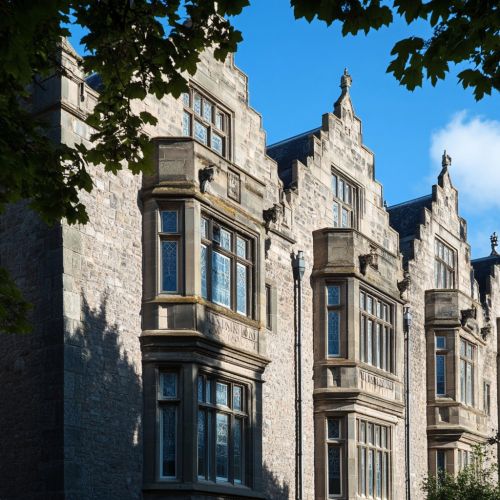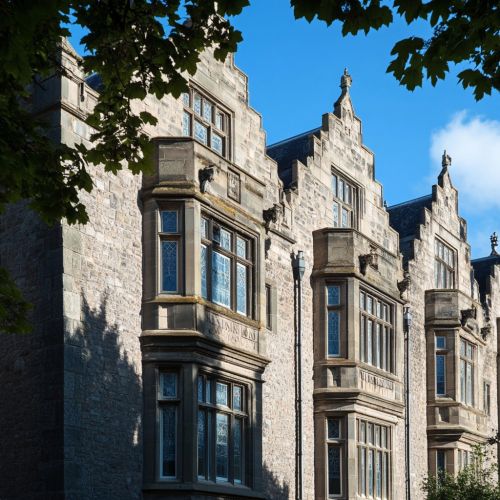University of Aberdeen
History
The University of Aberdeen is one of the oldest universities in the United Kingdom, founded in 1495 by William Elphinstone, Bishop of Aberdeen and Chancellor of Scotland. The university was established with the intention of providing higher education to the northeast of Scotland, and it has grown significantly over the centuries. Initially, it was known as King's College, and it was located in Old Aberdeen. In 1593, a second institution, Marischal College, was founded in New Aberdeen by George Keith, the fifth Earl Marischal. The two colleges were merged in 1860 to form the modern University of Aberdeen.


Campus and Architecture
The University of Aberdeen's campus is a blend of historic and modern architecture. King's College, with its iconic crown tower, is one of the most recognizable buildings on campus. The campus also includes the Marischal College building, which is one of the largest granite buildings in the world. The university has expanded over the years to include a variety of modern facilities, such as the Sir Duncan Rice Library, which opened in 2012 and features a striking contemporary design.
Academic Structure
The University of Aberdeen is organized into three colleges: the College of Arts and Social Sciences, the College of Life Sciences and Medicine, and the College of Physical Sciences. Each college is further divided into schools and departments that offer a wide range of undergraduate and postgraduate programs. The university is known for its research output and has several research institutes, including the Rowett Institute of Nutrition and Health and the Institute of Medical Sciences.
Research and Innovation
Research at the University of Aberdeen spans a wide range of disciplines. The university is particularly renowned for its work in medical sciences, environmental science, and energy. The Rowett Institute of Nutrition and Health is a leading center for research on human nutrition and health, while the Institute of Medical Sciences focuses on biomedical research. The university also has strong links with the energy industry, particularly in the areas of oil and gas exploration and renewable energy technologies.
Student Life
The University of Aberdeen offers a vibrant student life with a wide range of extracurricular activities. The university has over 150 student societies and sports clubs, catering to a diverse array of interests. The Aberdeen University Students' Association (AUSA) plays a central role in organizing events and representing student interests. The university also has a number of student support services, including counseling, academic advising, and career services.
Notable Alumni
The University of Aberdeen has produced a number of notable alumni who have made significant contributions in various fields. Some of the distinguished alumni include Nobel Prize laureates such as John Boyd Orr, who was awarded the Nobel Peace Prize for his work in nutrition and health, and George Paget Thomson, who received the Nobel Prize in Physics. Other notable alumni include Alistair Darling, former Chancellor of the Exchequer, and Mairi Hedderwick, a well-known author and illustrator.
International Collaboration
The University of Aberdeen has a strong international presence and collaborates with institutions around the world. The university participates in various exchange programs and has partnerships with universities in Europe, North America, Asia, and Australia. These collaborations enhance the university's research capabilities and provide students with opportunities for international study and research.
Libraries and Collections
The University of Aberdeen's library system is one of the most extensive in Scotland, with over a million volumes and a wide range of digital resources. The Sir Duncan Rice Library is the main library and serves as a hub for academic research and study. The university also has several specialized libraries, including the Taylor Library, which focuses on law and legal studies, and the Medical Library, which supports the university's medical and health sciences programs. The university's Special Collections Centre houses rare books, manuscripts, and archives, providing valuable resources for researchers.
See Also
- King's College, Aberdeen
- Marischal College
- Sir Duncan Rice Library
- Rowett Institute of Nutrition and Health
- Institute of Medical Sciences
- Aberdeen University Students' Association
- Nobel Prize
